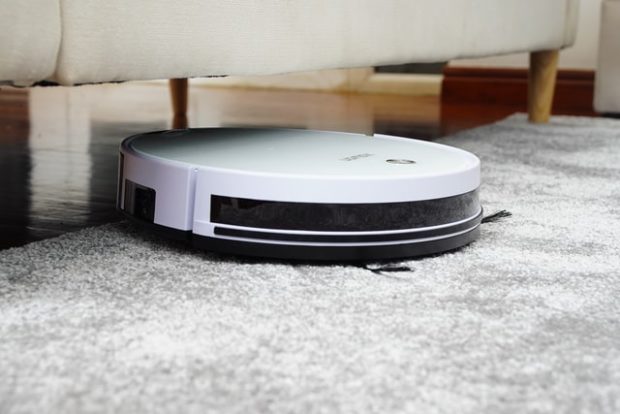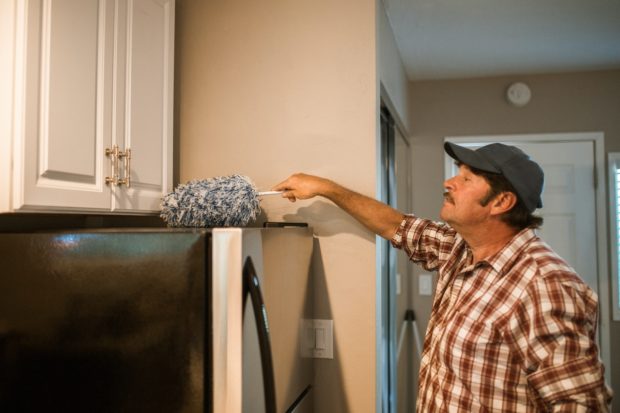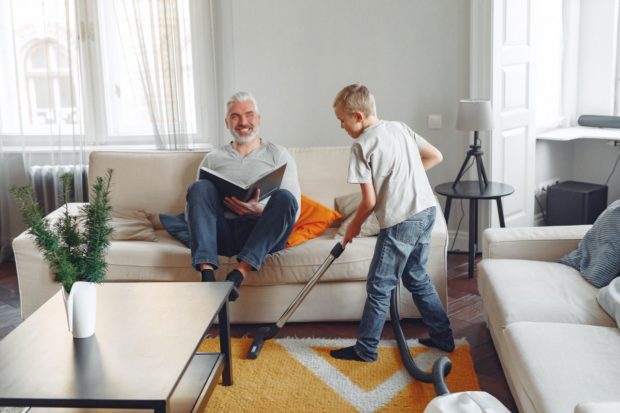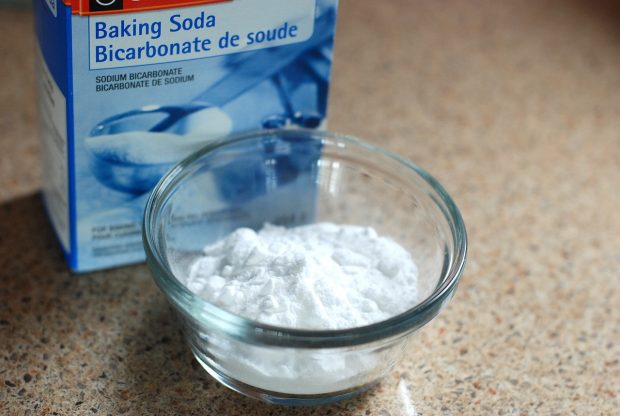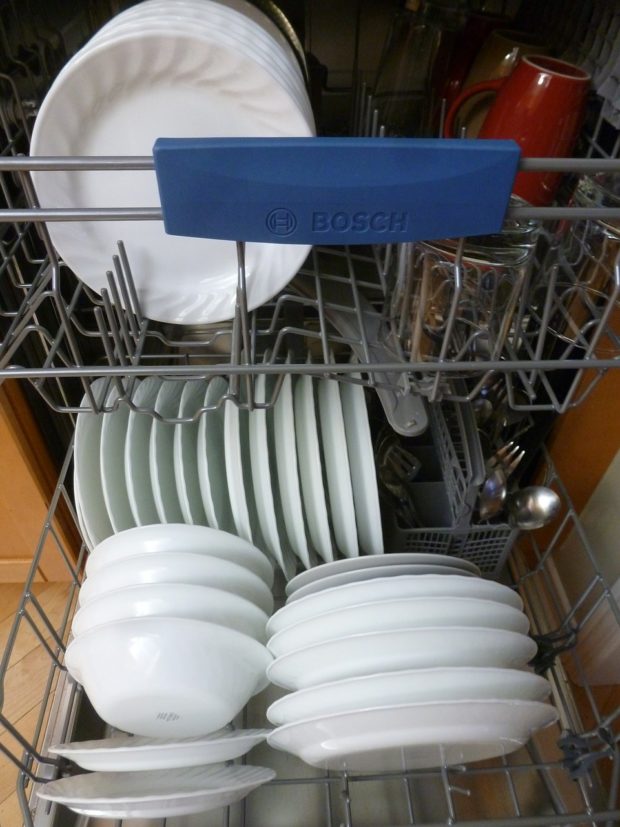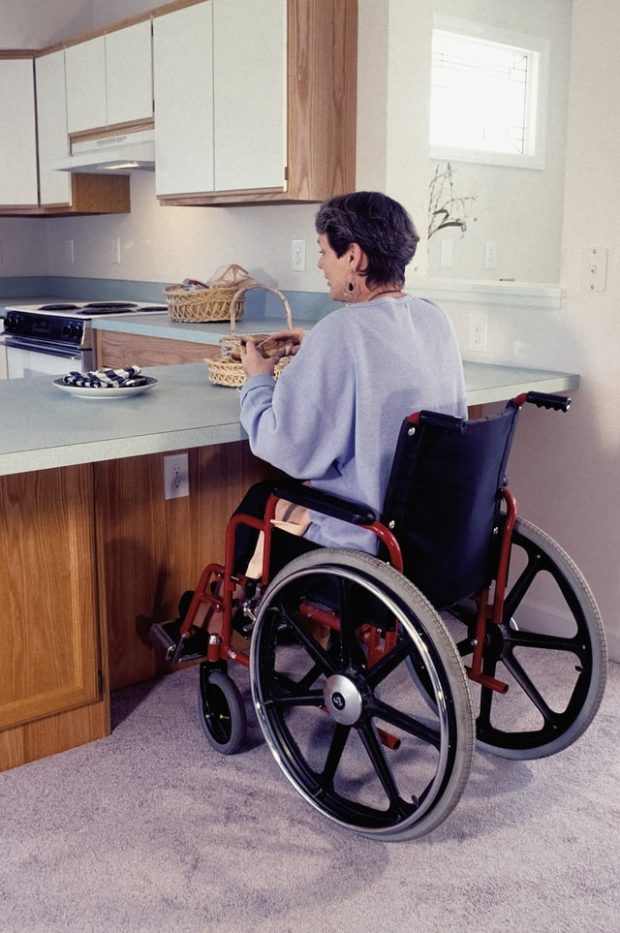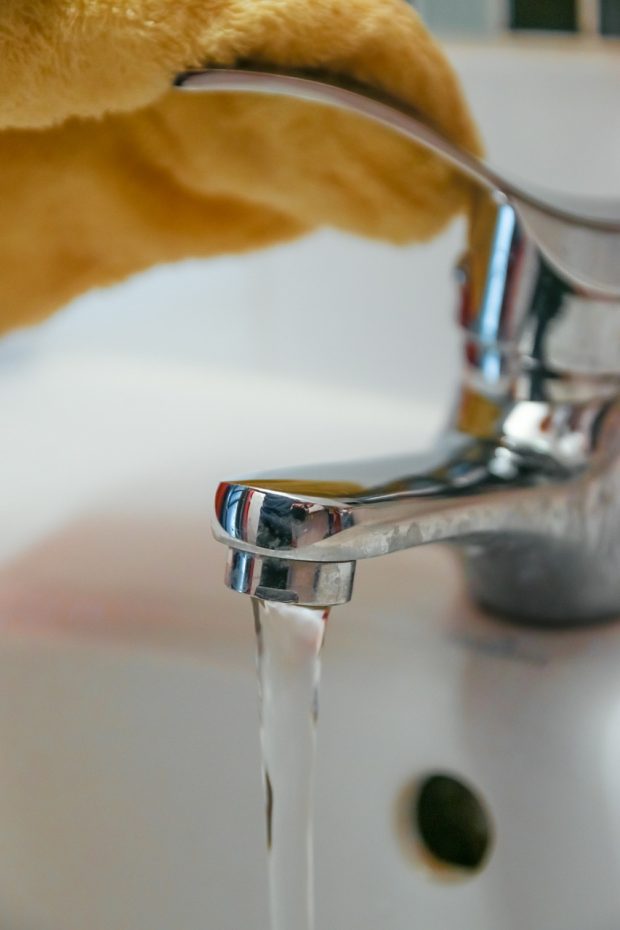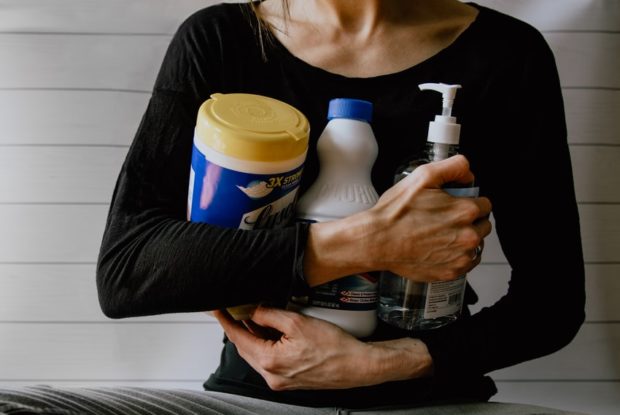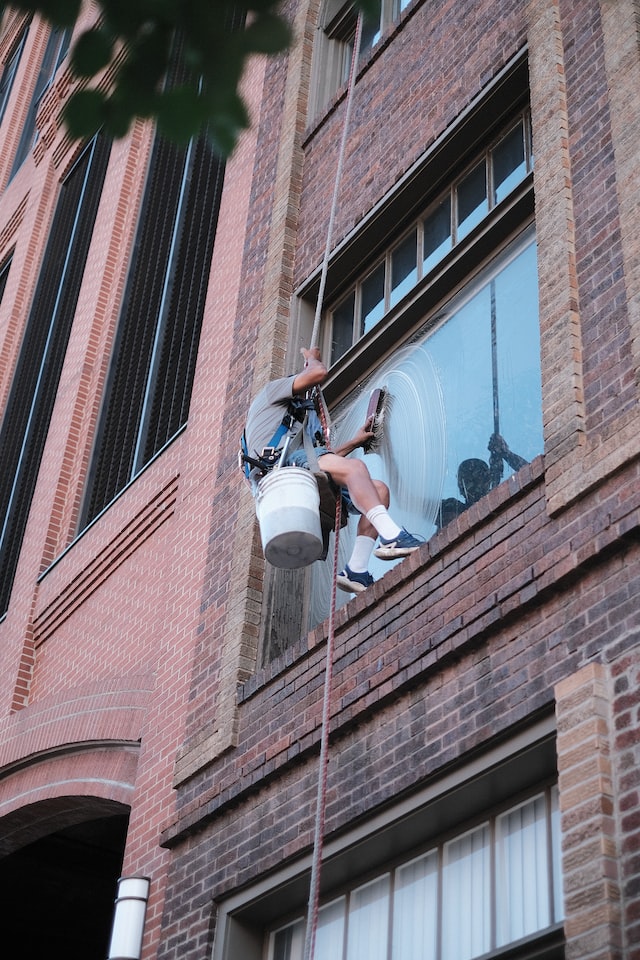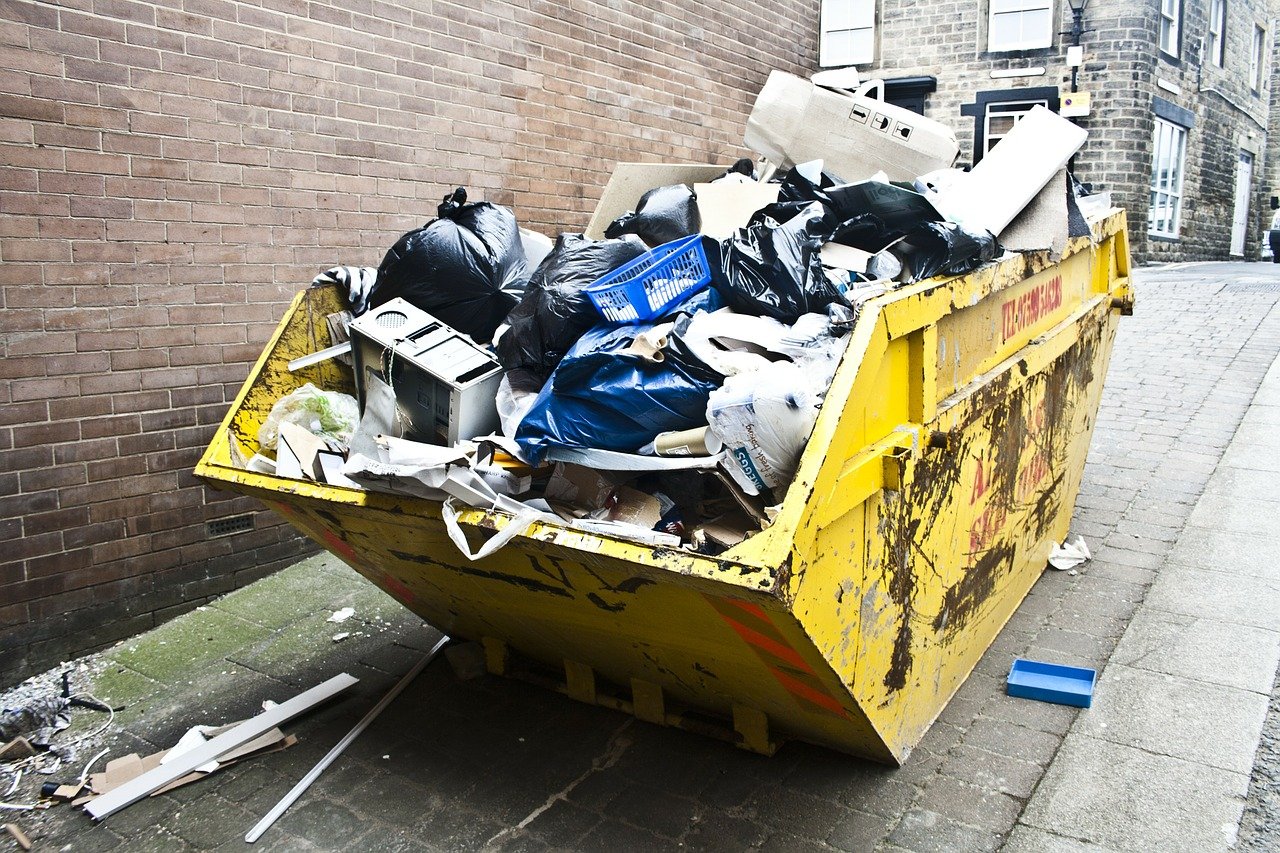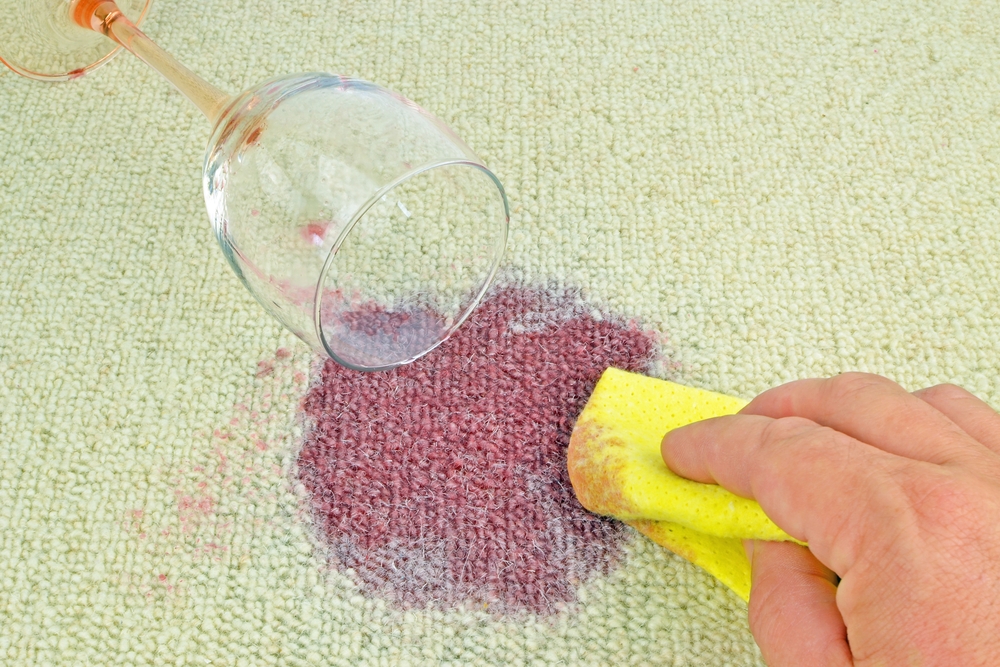The neatness of your home is in direct correlation with your health and lifestyle quality. Alongside security, it is a top priority for any homeowner. For a disabled person this is an even greater priority, however, keeping your home clean can sometimes be a challenge.
Fortunately, we live in a time where information, tools, and options are more available than ever, which means that you have a chance to organize in a way that will help you resolve this problem once and for all. With that in mind and without further ado, here are some of the top smart house cleaning tips that disabled people need to know about.
1. The right vacuum cleaner
When buying a vacuum cleaner, it is important that you prioritize lightweight over power. Try to imagine yourself handling it and see how well it fits. Remember that it’s not necessarily about the strength of the vacuum cleaner but the frequency of its use. With a lighter vacuum, you will dread these vacuuming instances a lot less. A robot vacuum cleaner can save you from a world of trouble. Today, they’re the least expensive and the most available they ever were. They are an easy method of automating the cleaning process of your home and a worthwhile investment in the long run.
2. Duster with an extendable handle
This is something that even people without disabilities would benefit from however, this is seldom seen as a priority when people decide to buy a duster. Having a duster with an extendable handle will make dusting simpler than doing so the old-fashioned way. Keep in mind that the length of the duster is limited and that the balance depends on a number of factors. Ideally, you would test it out before making a purchase but this won’t be possible when ordering online. Therefore, you want to go through some reviews or check a YouTube video of the product in question.
3. Find help
Finding someone to help you clean your home is often the best way to go. People with disabilities could get in touch with specialized NDIS cleaning agencies and have them look into the solution. Keep in mind that while, with the right strategy, you may access the majority of your household’s areas, there are some places that are still out of your reach. The degree of housekeeping you need may depend on your mobility, home layout, preferences, etc. this is why it’s best to get in touch with professionals and ask for a quote.
4. Quality cleaning agents and products
When you can’t rely on your ability to scrub hard, you have to be extra resourceful. First of all, you need to invest in a higher quality of cleaning agents. Second, your schedule needs to be much better than it currently is. Soaking dishes becomes a necessity, not a hack for getting things done quicker. It would also be a good idea to invest more time in research. Sometimes, natural agents like lemon and baking soda can be the most effective solutions. Each stain has its own antidote and learning how this causality works may help you out immensely.
5. Invest in applications
The right application (like the dishwasher) can make all the difference in the world for someone with a disability. A dishwasher will provide you with better hygiene of your dishes, seeing as how it uses higher temperature than you might get after washing them by hand. This means that more germs and bacteria will be exterminated this way. Second, a dishwasher detergent has a stronger formula than soaps and detergents you would normally use. Finally, the kitchen sink (when full) attracts insects and cockroaches. This way, the risk will be a lot lower.
6. Be more responsible about the clutter
Remove clutter as soon as it appears. The key thing you need to keep in mind is that once it piles up, it will be far more difficult to remove it. So, you need to react proactively and be more responsible. Sometimes, this is a matter of organization. For instance, designating junk drawers and keeping them accessible will help you out immensely. Second, you need to stop the clutter at its source. As soon as you bring something new to your home start considering if you need to get rid of something old. It’s that simple.
7. Take it easy
Even if you can do it all on your own, it’s probably going to be more effort-intensive and take more time. The key thing you need to remember here is that you don’t have to do it all in one day. Take your time, clean one room at a time, or pick a chore per day. If you’re organizing some help, this could be a good course of action, as well. You see, this way, you can have them help you with a single task which should take less of their time. Either way, doing things systemically definitely helps.
8. Cleaning with chronic pain
Lastly, it’s important to stress out that a disability doesn’t necessarily imply that one is tied to a wheelchair. A person with chronic pain will also have a huge challenge to clean their home. Fortunately, the majority of the above-listed tips can be quite helpful in this respect. You need to clean just one room per day, ask for help, and use specialized tools (some of which we already discussed). Overall, you might want to take breaks more often than you normally would. It’s a lot of pain and effort but in the end, it’s more than worth it.
In conclusion
Keep in mind that cleaning the place on your own will not only keep it neat but also allow you to take more charge of your own life. For a lot of people, limitations that come with a disability affect one’s confidence and self-esteem. Fortunately, this works the other way around, as well. Overcoming these limitations will feel like an achievement. By finding a way to be more self-reliant you will reclaim some of the confidence you might have lost. Not to mention the reward of living in an immaculate home.
Author bio:
My name is Grace Wilson. I’m a 27-year-old biotechnologist and kind of a bookish girl. Surfing the Internet is my favourite, that’s why I’ve turned into blogging. Following a healthy mindset and lifestyle is what I consider my life principle. If interested, follow my Twitter.

